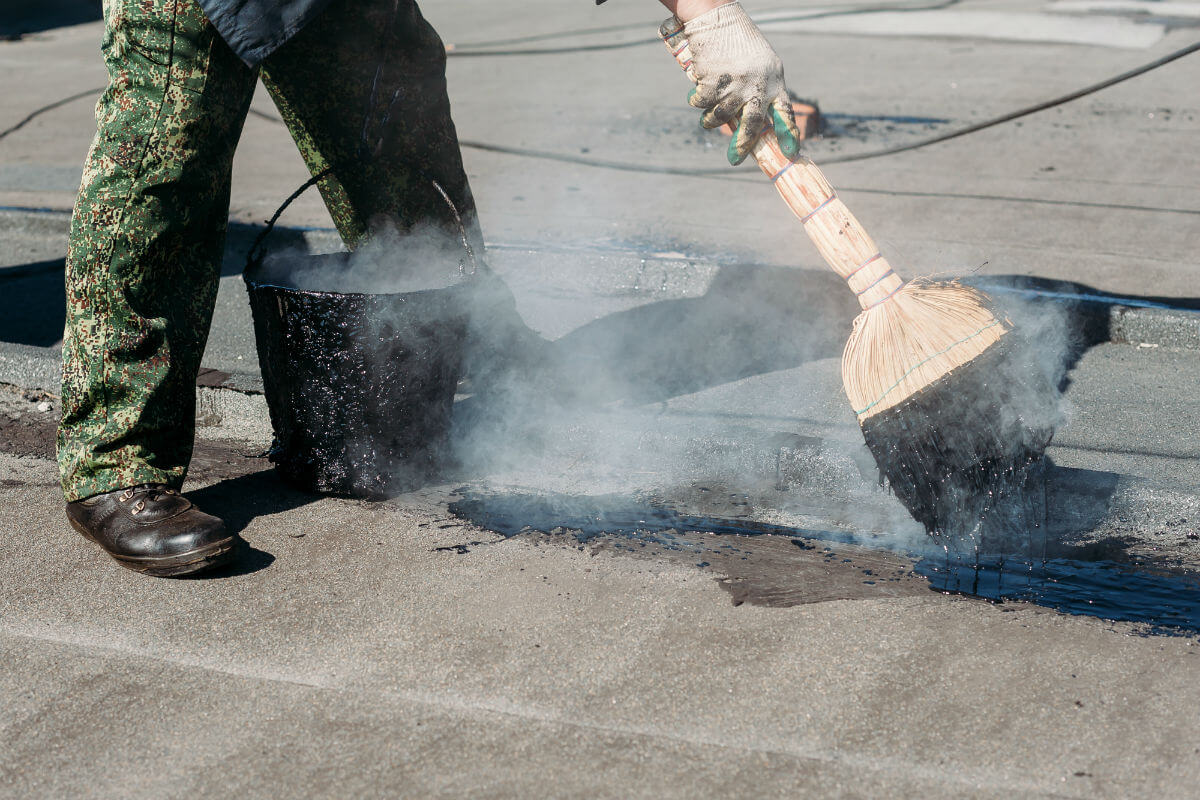
Roofing with Bitumen: Harnessing the Power of a Reliable Protector - Part 2
Welcome back to the second part of our journey into the world of roofing with bitumen. In Part 1, we explored the fundamentals of bitumen roofing, its advantages, and its various applications. In this continuation, we'll delve deeper into the installation process, compare bitumen with other roofing materials, and discuss sustainability and innovations that are shaping the future of bitumen roofing.
Bitumen Roofing Installation Process
Surface Preparation
Before installing a bitumen roofing system, proper surface preparation is crucial. The roof substrate needs to be clean, dry, and free from debris. Any existing roofing material should be removed, and any damage or defects should be repaired to ensure a smooth foundation for the bitumen layer.
Bitumen Application Methods
There are multiple methods for applying bitumen roofing, depending on the specific type of bitumen being used. Common methods include torch-applied, cold-applied, and self-adhesive systems. Each method has its own advantages and considerations, with factors like climate and roof slope influencing the choice.
Adding Insulation and Membranes
Insulation is an essential component of any roofing system. Bitumen roofing can be combined with insulation boards to enhance energy efficiency and create a more comfortable indoor environment. Additionally, bitumen roofing membranes can be layered for increased waterproofing protection.
Comparing Bitumen with Other Roofing Materials
Asphalt Shingles vs. Bitumen
Asphalt shingles are a popular roofing choice, but they differ from bitumen roofing. Bitumen roofing offers enhanced waterproofing due to its seamless application, while asphalt shingles consist of individual overlapping pieces. Additionally, bitumen roofing has a longer lifespan and can be more suitable for certain climates.
Bitumen vs. Metal Roofing
Metal roofing provides durability and a modern aesthetic, but it can be prone to corrosion over time. Bitumen roofing, on the other hand, offers excellent corrosion resistance and can be a more cost-effective choice for certain projects.
Sustainability and Eco-Friendliness
Recyclability of Bitumen Roofing Materials
Bitumen roofing materials can be recycled, contributing to sustainability efforts in the construction industry. The recycling process involves reclaiming used bitumen and incorporating it into new roofing materials, reducing the demand for new raw materials.
Embracing Green Roofing Practices
As environmental concerns grow, there's a rising interest in green roofing practices. Bitumen roofing systems can be combined with green roofing solutions, such as rooftop gardens, to create eco-friendly and aesthetically pleasing spaces.
Challenges and Solutions
Dealing with Temperature Extremes
Extreme temperatures can impact the performance of bitumen roofing materials. In colder temperatures, bitumen can become less adhesive, while in hot climates, it might soften. Proper installation techniques and selecting the right type of bitumen can help mitigate these challenges.
Addressing Wear and Tear
Like all roofing materials, bitumen roofing can experience wear and tear over time. Regular inspections and maintenance are essential to identify and address issues such as cracks, tears, and surface degradation before they worsen.
Innovations in Bitumen Roofing
Self-Adhesive Bitumen Sheets
Self-adhesive bitumen sheets simplify the installation process by eliminating the need for torching or heating. These sheets come with a pre-applied adhesive layer, ensuring a secure and efficient installation.
Bitumen-Modified Roofing Systems
Modified bitumen roofing systems incorporate additives to enhance their properties. These additives can include polymers and elastomers, which provide increased flexibility, crack resistance, and overall durability.
Stay tuned for the concluding section of this article, where we'll discuss the economic considerations of bitumen roofing, its impact on curb appeal, safety aspects, and a glimpse into the future of bitumen roofing.
Frequently Asked Questions
-
Can bitumen roofing be installed on both residential and commercial structures?
Yes, bitumen roofing is suitable for both residential and commercial buildings, providing reliable protection for various types of structures.
-
What is the typical lifespan of bitumen roofing?
The lifespan of bitumen roofing can vary based on factors such as the quality of installation, maintenance, and climate conditions. However, it can last 20 to 30 years or more with proper care.
-
Is bitumen roofing resistant to fire?
Bitumen roofing materials can have varying fire ratings, depending on the specific product. Some bitumen roofing systems offer excellent fire resistance, providing peace of mind for homeowners.
-
Is bitumen roofing a cost-effective choice?
Yes, bitumen roofing is generally considered a cost-effective option due to its affordable initial installation cost, longevity, and minimal maintenance requirements.
-
Are there color options available for bitumen roofing?
Yes, bitumen roofing materials come in a range of colors, allowing homeowners and designers to choose a shade that complements the overall aesthetics of the building.
